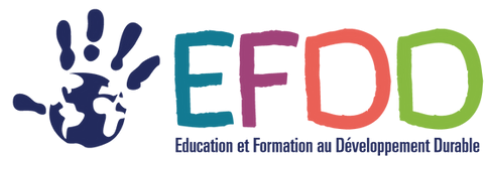6 Educational Tools for Sustainable Development Objectives
EFDD guides schools towards sustainable development with activities and a pedagogical approach that encourage cooperation and critical thinking. Their aim is to share experience and know-how, while promoting education for sustainable development.







Overview of the project
With the support of Wallonia, EFDD has created a series of 6 educational tools. They highlight very concrete themes by linking them to the Sustainable Development Goals (SDGs). The themes covered are: food, textile fibers, resilience, forests and trades. A brochure on how to organize a sustainable event (in-house or off-site) is also available. These tools are designed for teachers in general secondary education, qualifying secondary education, higher education, social promotion education, vocational training, and any person or group interested in these issues. They can be used directly in a course related to the theme, or because they address specific aspects or skills covered in the course. These tools have been designed to be adapted to suit teaching needs.
Use concrete and varied themes to address sustainability and sustainable development objectives.
Ongoing research
Project still in progress
A number of schools have already called on our trainers to teach in their classrooms or to lead their teaching teams. Training sessions in the use of pedagogical tools (face-to-face and webinars) have been organized since 2023.
With the support of Wallonia
organisation
The EFDD non-profit association offers activities to help schools make the transition to sustainable development. These objectives are manifold: supporting institutions, promoting education and training for sustainable development, designing training courses, creating and animating pedagogical tools, transmitting our know-how, gathering and organizing moments to share experiences from the field. EFDD’s trainers use active, project-based teaching methods and activities to stimulate cooperation, creativity and critical thinking. We encourage understanding of the systems approach, action in complex situations, multidisciplinary, participative and collaborative strategies.
